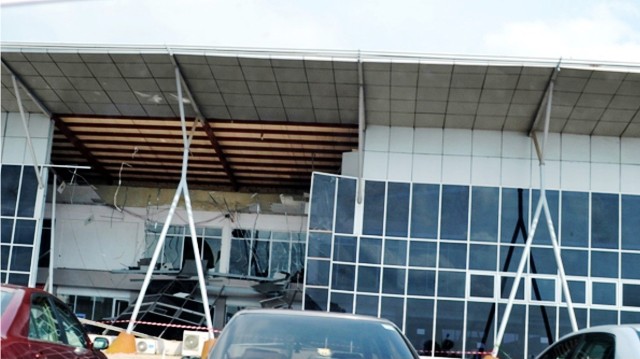Business
Nigeria’s Inflation Declines By 0.52%

The National Bureau of Statistics (NBS) has stated that the inflation rate dropped by 0.52 per cent in March to close at 17.26 per cent, the second decline recorded in two months.
The first decline was recorded in February when inflation dropped by 0.94 per cent to close at 17.78 per cent.
“This is the second consecutive month of a decline in the headline CPI on a year-on-year basis.
“It represents the effects of stabilising prices in already high food and non-food prices as well as favourable base effects over 2016 prices.
“It is also indicative of early effects of a strengthened Naira in the foreign exchange market.’’
According to the report, price increases have been recorded in all Classification of Individual Consumption by Purpose (COICOP) divisions that yield the Headline Index.
It, however, stated that the major divisions responsible for accelerating the pace of the increase in the headline index were Housing, Water, Electricity and Gas.
Others it said were Education, Food and Alcoholic Beverages, Clothing and Footware and Transportation Services.
On a month-on-month basis, the report stated that the Headline index increased by 1.72 per cent in March, 0.23 per cent points higher from the rate recorded in February.
The Food Index increased by 18.44 per cent (year-on-year) in March, slightly down 0.09 per cent points from the rate recorded in February, which was 18.53 per cent.
It stated that the index was driven by increases in the prices of bread, cereals, meat, fish, potatoes, yams and other tubers and wine.
It also stated that the slowest increase in food prices year-on-year was recorded by Soft Drinks, Fruits, Coffee, Tea and Cocoa.
In addition, the report stated price movements recorded by All Items less farm produce or Core sub-index rose by 15.40 per cent (year-on-year) in March.
It stated that it was down by 0.60 per cent points from the rate recorded in February (16.00) per cent.
“During the month, the highest increases were seen in miscellaneous services relating to dwelling, electricity, solid fuels, clothing materials.
“Increases were also seen in other articles of clothing, Liquid fuel, Spirits as well as Fuels and lubricants for personal transport equipment.
“The Urban index rose by 18.27 per cent (year-on-year) in March from 18.57 per cent recorded in February, and the Rural index increased by 16.47 per cent in March from 16.98 per cent in February.’’
On month-on-month basis, the report stated the urban index rose by 1.76 per cent in March from 1.52 per cent recorded in February.
It further stated that the rural index rose by 1.69 per cent in March from 1.47 per cent in February.
Our correspondent reports that CPI measures the average changeover time in prices of goods and services consumed by people for day to-day living.
The construction of the CPI combines economic theory, sampling and other statistical techniques using data from other surveys to produce a weighted measure of average price changes in the Nigerian economy.
Business
Two Federal Agencies Enter Pack On Expansion, Sustainable Electricity In Niger Delta

Business
Why The AI Boom May Extend The Reign Of Natural Gas

Business
Ogun To Join Oil-Producing States ……..As NNPCL Kicks Off Commercial Oil Production At Eba


